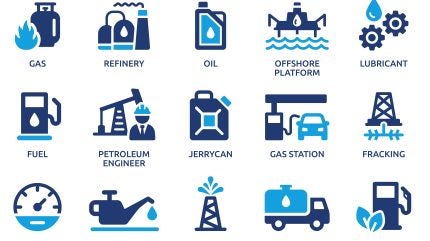
The trends seen across the global O&G sector in 2024 included a mixed bag of economic and production forecasts, mergers and acquisitions (M&A) and deep-water exploration making a comeback.
Here, Offshore Technology gives a rundown of the year’s most important topics.
Global demand shifts
Europe has now seemingly peaked in terms of its gas demand, roughly two-and-half years after going into panic mode due to its reliance on Russian gas.
Two interconnected trends began reshaping Europe’s gas market: a significant expansion in liquefied natural gas (LNG) capacity and the strategic phase-out of Russian gas.
According to Paul Hasselbrink, a senior upstream analyst at GlobalData, Offshore Technology’s parent company, the US and North America as a whole “has not peaked yet and saw modest growth”.
He also suggested that Donald Trump’s election win “can delay that peak further”.

US Tariffs are shifting - will you react or anticipate?
Don’t let policy changes catch you off guard. Stay proactive with real-time data and expert analysis.
By GlobalDataChina’s economic woes have been the primary cause for constant downward revisions of global oil demand forecasts by the Organisation of the Petroleum Exporting Countries (OPEC).
However, the impact of the adoption of electric vehicles and continuing development of renewables remains hard to predict, with overshoots and undershoots in 2022 and 2024, respectively, Hasselbrink added.
Greener and wider portfolios
Major O&G companies have increasingly diversified portfolios, either downwards into refining and petrochemicals, or into renewable energy with upstream-associated or stand-alone green energy projects.
Hasselbrink added that “moreover, there is a trend for consolidation, with O&G majors increasing market capitalisation through large M&A deals”.
Some of the most prominent deals throughout the year were acquisitions of Pioneer by ExxonMobil (which almost doubled the latter’s Permian footprint); Chevron’s purchase of O&G producer Hess for $53bn (as part of an all-stock transaction); and Marathon Oil being bought by ConocoPhillips for $22.5bn.
Geopolitical tensions
“Turbulence is the O&G market’s bread and butter, and 2024 has seen prolonged and renewed tensions arising,” said Hasselbrink.
There are several factors at play, which have helped to create peaks and lows in oil and gas prices.
“The main issues were Strait of Hormuz, where roughly 20% of global oil trade passes through, the tightening of sanctions on Russia and the consequent reconfiguration of official – and ‘shadow’ – trade routes, and varying OPEC production levels,” added Hasselbrink.
In addition, 2024 also saw the election, inauguration or appearance of leaders around the world with radically different approaches to energy production, as the need to continue to find and use oil and natural gas gained acceptance.
Technology adoption
“Increased AI adoption improved predictive maintenance, and helped to optimise production processes and facilitate data-driven strategies,” said Hasselbrink. This in turn prompted cost reductions and increased productivity.
However, adoption of AI remains concentrated in higher-income countries, which also have more regulatory pressure around energy efficiency and emissions mitigation.
Hasselbrink added: “These pressures have further pushed O&G operations towards electrification, as well as the adoption of carbon capture utilisation and storage and other emissions-reduction technologies.”
Resurgence of deep-water and offshore exploration
Gradually increasing oil prices since 2022 have now made a number of offshore projects economically viable, with notable discoveries in Brazil, the Gulf of Mexico, Guyana, Indonesia, the North Sea and West Africa in the past two years paving the way for numerous final investment decisions.
Hiring trends in oil and gas industry
While hydrocarbon companies expanded their portfolios and investments in 2024, hiring faltered. Analytics from GlobalData show that hiring in the global O&G industry underwent an 3% decline in 2024, when compared with the previous year.
The US remained at the forefront, posting just over 160,000 jobs across 2024. India took second place at almost 43,000 roles, while the UK came in a distant third with 15,291 to date.
Leading global companies in hiring were Sherwin-Williams, Air Liquide and John Wood Group.
As in 2023, the environment continued its reign as the most popular hiring theme, with just over 109,000 jobs posted in 2024. This was followed by social roles with 83,348 and the supply chain in third at 68,000.
The top occupations were engineering technologists and technicians with just under 11,000 roles posted, followed by drivers at 10,200 and marketing and sales managers at 9,100.
The factors behind 2024’s hiring landscape were varied. High activity in O&G M&As throughout the year resulted in an unsteady jobs market.
In November, ExxonMobil announced plans to reduce its workforce in Texas by nearly 400 positions following its acquisition of shale producer Pioneer Natural Resources.
Shell was also in the limelight from the beginning of 2024 for cutting hundreds of jobs including roles within its low-carbon solutions unit and 20% of its deals team. This followed the company’s divestiture of its domestic retail business to Octopus Energy.
Additionally, industry hiring was affected by a shifting regulatory and political landscape. Following the UK general election in July, Offshore Energies UK, which represents the offshore energy industry, warned the government about the risks associated with its proposal to increase and extend the windfall tax on energy companies, citing risks to thousands of jobs.
However, the UK Treasury affirmed that its industrial strategy aims to generate “thousands of new jobs in the industries of the future”.
Labour has pledged to create so-called ‘offshore skills passports’, which would allow workers to move more easily between the fossil fuel and renewables industries as the energy transition gains pace.



